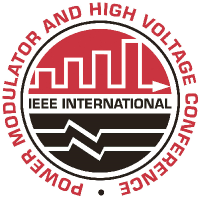Speaker
Sebastian Blume
(ETH Zürich)
Description
A new type of particle collider in the tera-electron-volt (TeV) energy range, the Compact Linear Collider (CLIC), is currently investigated at CERN [1]. In CLIC each klystron is supplied by a separate pulse modulator, which is able to provide 29 MW of pulse energy at a repetition rate of 50 Hz. This energy corresponds to an average continuous power of 210 kW. The 180 kV pulse is generated by a pulse transformer with a primary voltage of 3kV, which also is the voltage of the capacitor bank for storing the pulse energy. Since the pulse-to-pulse repeatability is demanding (deviation<100ppm), a high power interleaved charging system with a high charging precision has been developed. The charging system is based on a 750V to 3kV boost converter with 8 series connected 650V-MOSFET constituting the main switch and with operation in boundary conduction mode. The control scheme is based on [2].
In section II of the paper, the design of the capacitor charger is outlined and in section III the central control unit including a new optical communication protocol is presented. Due to the induced delay by the communication, a stability analysis of the interleaving controller is performed leading to new optimal control parameters. For validating the new converter design with reduced input voltage, full power measurements are presented for a single module with resistive load. Thereafter, the ultra-precise charging concept is described including the adapted interleaving control. Finally, also measurements showing the interleaved operation of the capacitor charger are given.
[1] D. Aguglia et al., “Klystron Modulator Technology Challenges for the Compact Linear Collider (CLIC),” in IEEE Pulsed Power Conference (PPC), June 2011
[2] Gerber, D.; Biela, J., "Interleaving of a Soft-Switching Boost Converter Operated in Boundary Conduction Mode," in IEEE Transactions on Plasma Science, vol.43, no.10, Oct. 2015
Author
Sebastian Blume
(ETH Zürich)
Co-authors
Dr
Dominic Gerber
(ETH Zurich)
Juergen Biela
(ETH Zurich)

